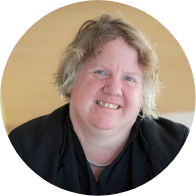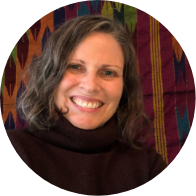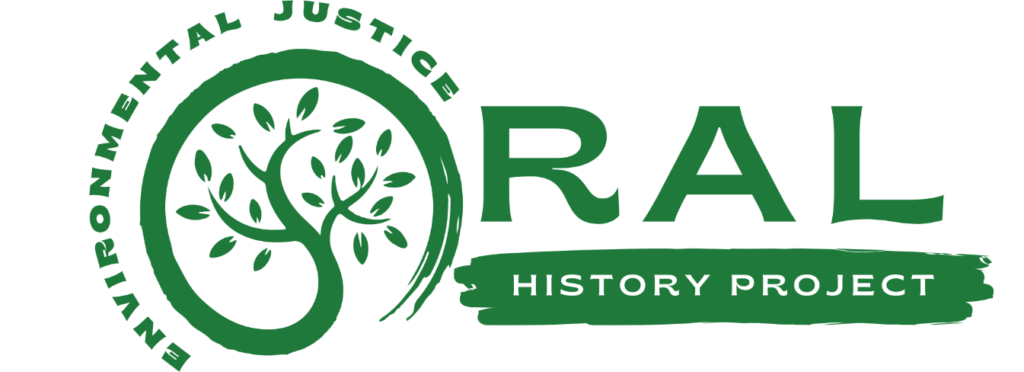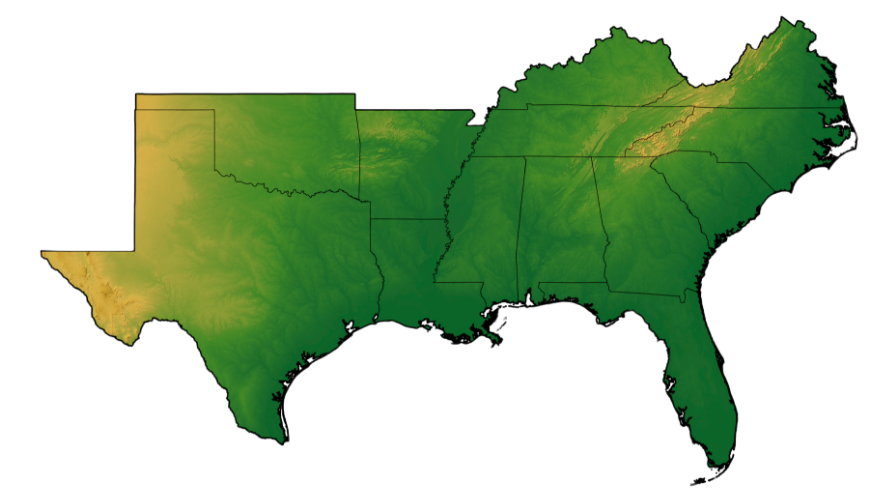In collaboration with the Rural Beacon Initiative, this collection represents the collective knowledge and experiences of environmental justice advocates and allies across the region.
The Gulf South has historically sat as a sacrifice zone for legacy pollution from the oil and gas industry. Houston, Texas, now further threatened by climate-caused severe weather, has contended with the cumulative impacts of toxic waste dumps, petrochemical facilities, and displacement from highway construction. In New Orleans, Louisiana the unprecedented destructive Hurricane Katrina in 2005 and the subsequent lack of government response, “Cancer Alley” a stretch of petrochemical facilities that results in air pollution that disproportionately impacts low-income and Black communities, and substantial coastal land loss. This mini-collection spotlights the experiences, cultures, and protests of several Gulf South residents and activists.
Union Hill is a community in Buckingham County, Virginia that was settled by formerly enslaved peoples. In 2013, this historically Black community started what would be a 7 year protest against the placement of the Atlantic Coast Pipeline (ACP) in the middle of their neighborhood. Their consistent protest and advocacy for historical preservation status for the community led to the ACP’s cancellation, a major win for the Environmental Justice Movement. Today, Union Hill continues to fight against industry-caused environmental harm, a collective that refuses to yield to continued government and corporate disenfranchisement.
- = Partner Community
Why the U.S. South?
The U.S. South is a land of fraught histories – longstanding instances of racialized violence as well as some of the deepest foundations of the Civil Rights and Environmental Justice Movements. Today, the South is projected to be hit first and worst by climate impacts: severe weather events, extreme heat, flooding, and more. At the same time, this region – as a result of systemic racism and a history of natural resource exploitation – has seen some of the least community and infrastructure investment in the country. In a world coming out of COVID-19, which has also had devastating impacts across rural communities in the American South, stories and memories of community elders and other first-hand observers of environmental injustice are more critical than ever.
Oral Histories Collection
Oral history is characterized as the study and preservation of historical events through the voice and knowledge of recorded individuals. This practice, which has existed as a central means of history-saving for many cultures and communities for generations, has – to an extent – become a complicated and historically extractive academic exercise.
This project is a practice in accessible oral history, utilizing academic and journalistic protocols as well as community storytelling to build something meaningful.
Oral histories are a form of intergenerational wealth. Stories of environmental justice and land history urgently need to be documented, archived, and passed down both for the communities themselves – on their own terms – as well as for advocates of the environment, humanities, medicine, and public policy who seek to promote more equitable policies.
The goal is to build a repository of oral histories that provide evidence of the pervasiveness of environmental injustice and positive land connections in this country, especially in rural Southern and POC communities.
Oral histories are a conversation. The videos shown are unedited and designed to preserve the integrity of the narrator and their story as it was shared with us. If you’d like to learn more about our interview and transcript protocols, check out the “Research” section of our Media & Resources page.
**For additional context, fact checks/corrections, and clarifications, please refer to footnotes in the transcripts.
ALEX EASDALE
Executive Director for the Southeast Climate & Energy Network
EJ Advocates Collection
Transcript Coming Soon!
BLAKELY HILDEBRAND
Senior Attorney for the Southern Environmental Law Center – NC
EJ Advocates Collection
CHANDRA TAYLOR
Senior Attorney and Leader of the Environmental Justice Initiative at the Southern Environmental Law Center
EJ Advocates Collection
Transcript Coming Soon!
CRYSTAL CAVALIER
Co-Founder of Seven Directions of Service & Afro-Indigenous Climate Justice Advocate
EJ Advocates Collection
HOLMES HUMMEL
Founder & Executive Director of Clean Energy Works
EJ Advocates Collection
JASMINE WASHINGTON
Associate Attorney at the Southern Environmental Law Center
EJ Advocates Collection
KAREN CAMPBLIN
Environment and Climate Justice Committee Chair for the Virginia State Conference NAACP
EJ Advocates Collection
MARIA SAVASTA-KENNEDY
Clinical Professor of Law at the University of North Carolina at Chapel Hill
EJ Advocates Collection
RORY MCILMOIL
Former Senior Energy Analyst at Appalachian Voices and Researcher at the National Renewable Energy Laboratory
EJ Advocates Collection
Transcript Coming Soon!
RYKE LONGEST & LEE MILLER
Director & Lecturing Fellow at Duke’s Environmental Law and Policy Clinic
EJ Advocates Collection
RYAN EMANUEL
Associate Professor & Co-Chair of Community Engagement and Environmental Justice at Duke University
EJ Advocates Collection
VERONICA CARTER
Member of the North Carolina Environmental Justice Advisory Board, Department of Environmental Quality
EJ Advocates Collection
ANNE WHITE HAT
Sicangu Lakota herbalist and Water Protector & owner of Maypop Herb Shop
Gulf South Collection
ALVIN BYRD
Community Leader – The First Super Neighborhood Council President of the Fifth Ward in Houston, TX
Gulf South Collection
DARRYL MALEK-WILEY
Senior Organizing Representative with Sierra Club’s Environmental Justice and Community Partnership Program
Gulf South Collection
HALI DARDAR
Language Vitality Program Coordinator at the Smithsonian Center for Folklife and Cultural Heritage
Gulf South Collection
IGALIOUS “IKE” MILLS
Executive Director of International Farmers and Ranchers
Gulf South Collection
REV. JAMES CALDWELL
Founder & Director of the Coalition of Community Organizations
Gulf South Collection
Transcript Coming Soon!
SWAMI DAYANANDA
Faith Leader and Activist in Yogaville
Union Hill Collection
Transcript Coming Soon!
ELLA ROSE w/ CHAD OBA
Union Hill Residents and Community Advocates against the Atlantic Coast Pipeline
Union Hill Collection
Transcript Coming Soon!
Duke University Oral History Faculty + Student Team
(2021-2023)

Dr. Erika Weinthal
Dr. Weinthal specializes in global environmental politics and environmental security with a particular emphasis on water and energy. Areas of research include (1) global environmental politics and governance, (2) environmental conflict and peacebuilding, (3) the political economy of the resource curse, (4) climate change adaptation, and (5) global energy transitions).

Dr. Elizabeth "Betsy" Albright
Elizabeth’s current research centers on how policies and decisions are made in response to extreme climatic events. Further, she is interested in collaborative decision making processes, particularly in the realm of water resource management.

Margaret "Lou" Brown
As Senior Research Scholar and Director of Programs for the Forum for Scholars and Publics, Margaret “Lou” Brown advocates for, develops, and supports interdisciplinary program development and community engagement. She holds a Ph.D. in sociocultural anthropology from Washington University in St. Louis, where she also taught and developed education and outreach programs in Anthropology, American Culture Studies, Social Thought and Analysis, and the Center for New Institutional Social Sciences.

Miguel Rojas Sotelo
Miguel Rojas-Sotelo works at the intersection of critical human geography, ethnic studies, visual anthropology, environmental and health humanities and cultural theory. As scholar, filmmaker, visual artist, and media activist he studies how communities of color (indigenous and migrants) and natural spaces are shaped by modernity and how they mobilize to adapt and resist.
Assistant Project Coordinator
Ameena Hester
- Christina Boxberger
- Dani Sullivan
- Hattie Halloway
- Megan Corey
- Meghna Parameswaran
- Rachel Kamis
- Sophia Chimbanda
- Tashia Ethridge
- Victoria Ely
- Kaylee Rodriguez
- Lillian Thomas
- Madeline Waterfield
- Nhu Bui
- Ryan Parks
- Jasmine Clairsant

